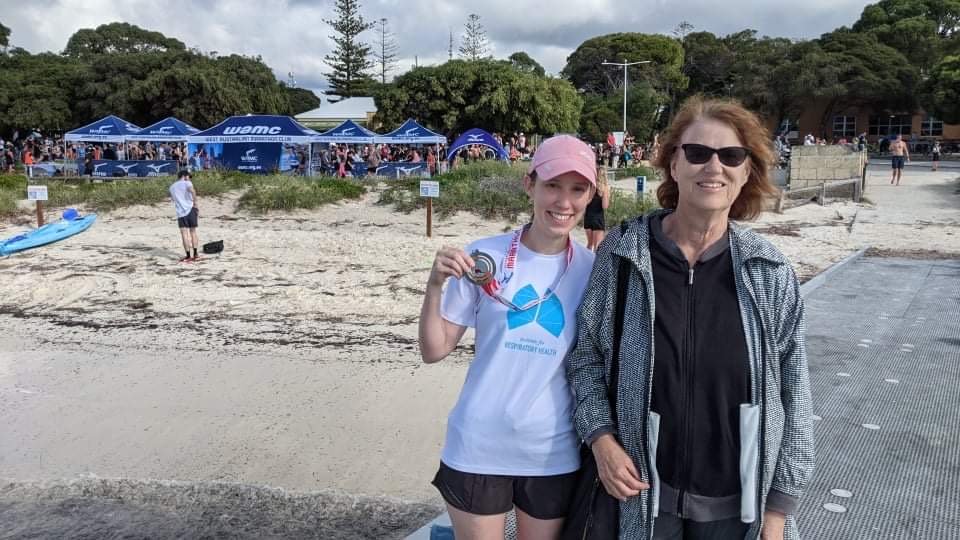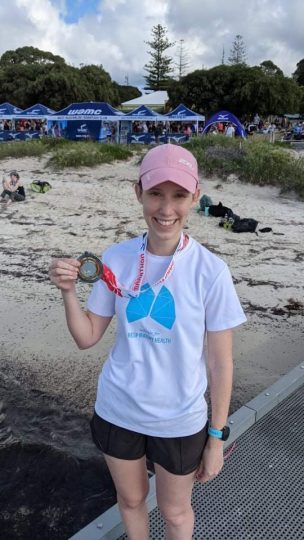Rottnest Island Marathon: Sophie tackles 42.2km in memory of dad
Loving daughter Sophie Nolan took on the Rottnest Island Marathon on Sunday 13 June in memory of her late father.

The 33-year-old, from Applecross, raised over $4000 for the Institute for Respiratory Health following her dad’s death two years ago.
Danny Nolan, 63, inherited a rare genetic condition called alpha-1 antitrypsin deficiency, where the body’s ability to produce a protein called alpha-1 antitrypsin is reduced, resulting in damage to the lungs and other organs like the liver and the skin.
When this condition affects the lungs, it causes emphysema.
“It was heart-wrenching to watch dad as he became progressively weaker, chronically congested and struggled to breathe,” said Sophie.

“But then we received the miraculous news that dad would receive a lung transplant. Sadly, following complications post-transplant, my dad passed away.
“I was so incredibly proud of him, as in the face of this debilitating disease, he showed incredible courage and did everything he could to embrace life and appreciate the simple pleasures.”
Sophie decided she would do her dad proud but also wanted to raise awareness about the debilitating disease and decided to tackle the Rottnest Island Marathon and fundraise at the same time.
“It was the first time that I’ve taken on a challenge like this. When I ran I felt like Dad was with me. We had spoken about running the Parkrun together after his transplant. I feel grateful that I could carry him with me when I ran.”
Sophie had started training for the marathon earlier this year. She gradually built up her kilometres and ran 32kms before the marathon, which helped her reach her goal. Being a dietitian, there’s also been a strong focus on her diet.
“I felt such a massive sense of excitement for the big day and am extremely grateful that I had the chance to run to raise awareness about a disease that few people know about.
“I know my dad was with me in spirit on the day. Hopefully, my small contribution to help fund research for this rare genetic disorder will help to save lives in the future. I hope that there will be a cure one day.”